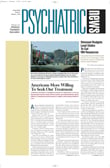The director of Essential Drugs and Medicines Policy for the World Health Organization (WHO) recently said that the reliability of clinical trials is seriously threatened in three major ways: conflicts of interest on the part of investigators, inappropriate involvement of research sponsors in the design and management of trials, and publication bias in disseminating results.
The WHO official, Jonathan Quick, made the comments in an editorial titled “Maintaining the Integrity of the Clinical Evidence Base,” in the December issue of the WHO’s monthly Bulletin.
Quick cited recent studies showing that authors who supported the use of certain cardiovascular treatments “were significantly more likely to have a financial relationship with the drug’s maker than those who did not [support the drug].” In addition, other studies have indicated that research funded by the manufacturer of a new medication is significantly more likely than independently funded research to support the safety and efficacy of the new medication.
Indeed, Quick cited one study in which independently funded research of cancer drugs was found to be seven times more likely to reach an unfavorable conclusion about the drugs than research funded by the maker of the drug being studied.
Recent studies have also documented the extent to which some drug companies allegedly go in order to produce desired results for a candidate drug. “Investigators may have little or no input into trial design, no access to the raw data, and limited participation in data interpretation,” he stated. This may result in flawed design or invalid research practices such as “data dredging,” he noted, which is repeated post-hoc analyses of data sets until positive results turn up.
One study Quick cited found that 35 percent of signed agreements between drug companies and university-based researchers had clauses allowing the sponsor to delete information prior to publication; 53 percent of those agreements allowed delay of publication, and some 30 percent allowed both.
“Most clinical research is still conducted to highly exacting standards of objectivity,” Quick wrote. However, last fall, the concern was great enough that 13 leading medical journals jointly published an editorial clearly stating that “contracts should give the researchers a substantial say in trial design, access to the raw data, responsibility for data analysis and interpretation, and the right to publish.”
Shifting Editorial Policy
The new editorial policy adopted by the Lancet, Journal of the American Medical Association, New England Journal of Medicine, and 10 other major medical publications sets out new editorial policies in which submitting authors are required to sign a statement verifying that their results and conclusions have not been influenced unduly by an industry sponsor.
APA’s American Journal of Psychiatry and Psychiatric Services, as well as the journals published by American Psychiatric Publishing Inc. (APPI), are reviewing the new editorial policy to consider whether to adopt them, according to their editors.
“Objective research is the lifeblood of future treatments,” APA President Richard Harding, M.D., told Psychiatric News. The editorial policies adopted by the 13 journals last fall are “an important step in bringing back into perspective the objectivity and the accountability of each individual physician researcher.”
APA President-elect Paul Appelbaum, M.D., agreed. The editorial policy “seems to be a very important step to take in terms of helping to guarantee the objectivity of the data that are reported.”
Both Harding and Appelbaum are hopeful that the editorial boards of the APA and APPI journals will give strong consideration to the policies written by the other journals.
Appelbaum said one of the goals of the new editorial policies is to “give researchers leverage with the pharmaceutical companies in terms of getting rid of such clauses.” Appelbaum said that under the new policies, authors would be able to argue that research conducted under contracts with restrictive clauses would not be publishable in any of the major journals, so if the drug company wants results published, the contract would have to be free of any such clauses.
New Policies at WHO
The WHO is tightening its own rules for staff and expert advisers on conflicts of interest, and according to Quick, has established “firewall procedures between commercial interests and normative, regulatory, and research decisions.”
Quick believes it is time for a declaration on the rights and obligations of clinical investigators and how to manage the entire clinical trials evidence base, similar to the Declaration of Helsinki that nearly 40 years ago sought to provide fundamental protections for human research subjects.
Such a declaration would stipulate, Quick wrote, that industry sponsors of clinical trials certify that specified rules were followed “to ensure the intellectual independence of investigators.”
He also called for the development of a registry, accessible to third parties, that would include all details of clinical trials, as well as the enactment of legislation that would prohibit drug companies from taking legal action against investigators, except in cases of fraud.
“If clinical trials become a commercial venture in which self-interest overrules public interest, and desire overrules science,” Quick concluded, “then the social contract that allows research on human subjects in return for medical advances is broken.”
Quick’s editorial in the December WHO Bulletin may be read online at www.who.int/bulletin/. ▪
